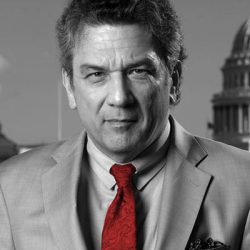Washington, D.C. Federal criminal defense attorney Solomon Wisenberg reviews Southern District of New York (SDNY) Judge Analisa Torres’ grant of a mistrial last week in the federal fraud trial against “We Build A Wall” defendant Timothy Shea.
As published in the White Collar Crime Prof Blog
The Timothy Shea Mistrial: It’s Tough To Dismiss An Obstinate Juror
By Solomon L. Wisenberg
SDNY Judge Analisa Torres granted a mistrial last week in the federal fraud trial against “We Build A Wall” Defendant Timothy Shea. On June 2, 11 of the jurors sent a note to the judge, asking that a 12th juror be dismissed because he allegedly refused to deliberate, based on what appeared to be his Trumpian political comments and bias. The hold-out denied the charges, and accused his fellow jurors of liberal political bias. Judge Torres questioned the juror on the record, but in private away from the public and the other jurors. According to the New York Times account, “she asked whether the juror had ‘biases or personal views’ that would prevent him from being ‘fair and impartial,’ whether he could determine facts subject to her explanation of the law and whether he could consult with other jurors. The juror replied no to the first question and yes to the second two.” Judge Torres declined to kick the hold-out off the jury, gave a modified Allen charge, and told the jury to continue deliberations. By Tuesday they were at a total impasse and a mistrial was declared. Shea’s counsel, John Meringolo had already filed a motion for mistrial, based on Judge Torres’ modification of the Allen charge and the 11 jurors’ alleged breach of jury secrecy when the jury note revealed their numerical division. It doesn’t look like Judge Torres ever ruled on that motion. She didn’t need to, once the jury reached a total impasse.
Recall that the case concerned the alleged fraudulent diversion of funds solicited under the premise of finishing then-President Trump’s wall between the U.S. and Mexico. Shea allegedly conspired with others, including former Trump advisor Steve Bannon who was pardoned by Trump. Venue could have been had in a number of jurisdictions, but the prosecutors chose SDNY. Gee. I wonder why. So did the 12th juror. Was the 12th juror truly refusing to deliberate or was he simply unconvinced of Shea’s guilt beyond a reasonable doubt. According to the Times, the other jurors spoke of the hold-out’s refusal, “to deliberate based on evidence.” Hmmm. Does that mean the evidence as they saw it, but not the hold-out? You can see the danger in dismissing hold-outs in this context, particularly in a politically charged case. Any 11 could complain about the hold-out’s recalcitrance and “refusal to deliberate.” Was there truly a “refusal to deliberate” or 11 bullies ganging up on a principled hold-out? We’ll never know of course. The Second Circuit law is very clear on this issue. Once the hold-out answered Judge Torres’s questions in the manner he did, he could not be removed. Under United States v. Thomas, 116 F.3d 606, 608 (2nd. Cir. 1997), a juror can be dismissed “for a refusal to apply the law as instructed only where the record is clear beyond doubt that the juror is not, in fact, simply unpersuaded by the prosecution’s case.” That standard was simply not met in Shea’s case. This was the right result under the case law. Meringolo’s objection to the modified Allen charge was based on Judge Torres’s additional admonition that the jurors not be swayed “by sympathy, emotion, or political views or opinions.” (emphasis added).
Here is the New York Times story. Here is Meringolo’s U.S. v. Timothy Shea Letter Motion for Mistrial.


